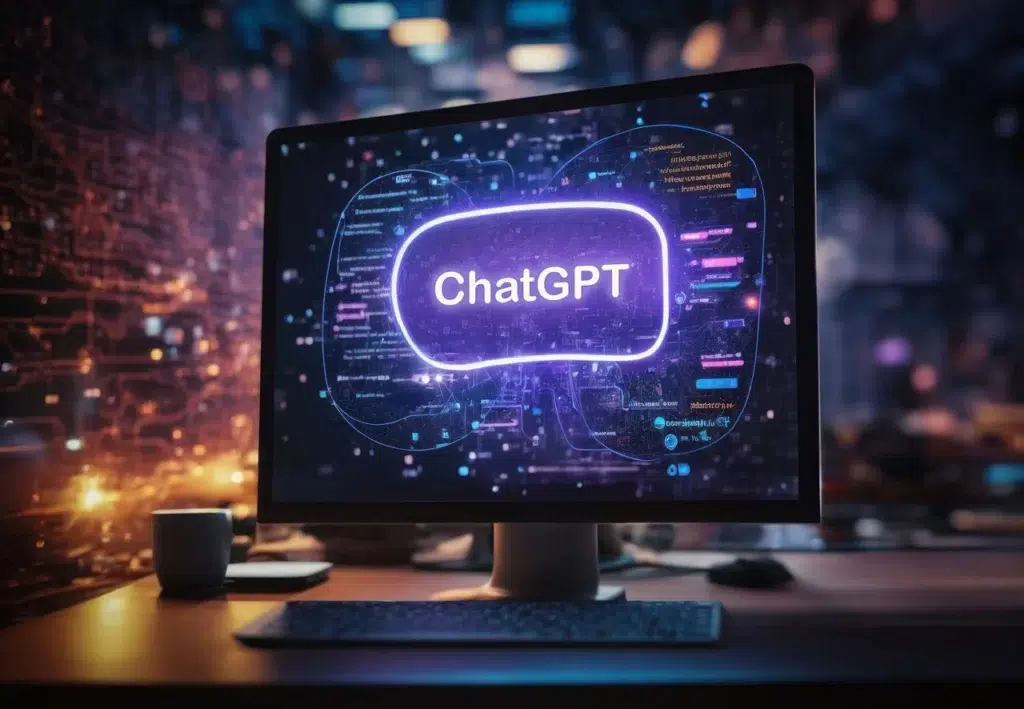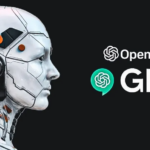ChatGPT has taken the world by storm, emerging as a powerful tool with vast potential. This large language model chatbot, developed by OpenAI, has garnered significant attention for its ability to hold human-like conversations and generate creative text formats.
Whether you're a tech enthusiast, a curious individual, or someone seeking to understand the future of communication, this blog post dives deep into the world of ChatGPT. We'll explore its capabilities, applications, benefits, and potential drawbacks, equipping you with everything you need to know about this innovative AI.
What is ChatGPT?
Launched in November 2022, ChatGPT is a large language model chatbot built by OpenAI. It is trained on a massive dataset of text and code, allowing it to communicate and generate human-quality responses.
Here's what makes ChatGPT unique:
- Natural Language Processing (NLP): ChatGPT utilizes NLP techniques to understand the context and intent behind user queries. This enables it to respond in a way that is relevant and coherent.
- Generative Pre-training: Trained on a massive dataset of text and code, ChatGPT can generate different creative text formats, like poems, code, scripts, musical pieces, emails, and letters.
- Interactive Communication: Unlike traditional chatbots with pre-programmed responses, ChatGPT can engage in open-ended, dynamic conversations, adapting to the user's input.
What Can ChatGPT Do?
ChatGPT's capabilities extend far beyond simple conversation. Here's a glimpse of its diverse functionalities:
- Answer your questions: Whether you have factual inquiries or open-ended questions, ChatGPT can access and process information to provide informative and comprehensive answers.
- Boost your creativity: Need help brainstorming ideas? Stuck on a writing project? ChatGPT can assist in generating creative text formats, sparking inspiration and overcoming writer's block.
- Enhance your productivity: ChatGPT can help you with various tasks, such as writing emails, composing letters, and even creating basic code snippets.
- Improve communication: Need to translate languages or rephrase sentences? ChatGPT can assist with different language tasks, making communication more efficient.
- Personalize your experience: ChatGPT can learn and adapt to your preferences over time, offering personalized responses and recommendations.

Benefits of Using ChatGPT
ChatGPT offers several advantages for individuals and businesses alike:
- Increased Efficiency: Automating tasks like writing emails and generating content can save users valuable time and resources.
- Enhanced Creativity: ChatGPT can spark new ideas and overcome writer's block, fostering a more creative workflow.
- Improved Communication: Language translation and rephrasing capabilities can bridge communication gaps and enhance understanding.
- Personalized Interaction: Tailored responses and recommendations create a more engaging user experience.
- Accessibility: The basic version of ChatGPT is readily available and free to use, making it accessible to a wide audience.
Potential Drawbacks of ChatGPT
While ChatGPT offers significant benefits, it's crucial to acknowledge potential drawbacks:
- Bias and Factual Errors: As with any AI system trained on massive datasets, there's a risk of inheriting biases and generating factually incorrect information. Users need to be cautious and critically evaluate the information provided by ChatGPT.
- Misuse and Malicious Applications: In the wrong hands, ChatGPT could be misused for malicious purposes like spreading misinformation or creating deepfakes. It's essential to use ChatGPT responsibly and ethically.
- Overdependence on AI: While ChatGPT can be a valuable tool, relying solely on AI for creative tasks and critical thinking can hinder human development and innovation.
The Future of ChatGPT
ChatGPT represents a significant step forward in the field of AI-powered communication. As the technology continues to evolve, we can expect further advancements in its capabilities, with potential applications in various sectors:
- Education: ChatGPT could personalize learning experiences, provide real-time feedback, and even act as a virtual tutor.
- Customer Service: AI-powered chatbots like ChatGPT can offer 24/7 customer support, answer frequently asked questions, and resolve simple issues.
- Content Creation: ChatGPT can assist writers, journalists, and content creators by generating ideas, suggesting prompts, and even writing basic drafts.
- Healthcare: ChatGPT could potentially be used for tasks like appointment scheduling, preliminary information gathering, and even basic mental health support through guided conversations.
It's important to remember that ChatGPT is still under development, and its long-term impact remains to be seen. However, its potential to revolutionize communication, enhance creativity, and streamline various tasks is undeniable.
Using ChatGPT Responsibly
As with any powerful tool, using ChatGPT responsibly is crucial. Here are some key points to remember:
- Be aware of its limitations: ChatGPT is a tool, not a replacement for human judgment and critical
ChatGPT: Everything You Need to Know About the AI-Powered Chatbot (FAQ)
What is ChatGPT?
ChatGPT is a large language model chatbot developed by OpenAI in November 2022. It uses natural language processing (NLP) to understand and respond to user queries in a human-like way.
What can ChatGPT do?
- Answer your questions in a comprehensive and informative way.
- Generate different creative text formats like poems, code, scripts, emails, and letters.
- Assist with tasks like writing emails, composing letters, and basic code snippets.
- Translate languages and rephrase sentences.
- Learn and adapt to your preferences over time, offering personalized responses and recommendations.
What are the benefits of using ChatGPT?
- Increased efficiency by automating tasks.
- Enhanced creativity by sparking new ideas and overcoming writer's block.
- Improved communication through language translation and rephrasing.
- Personalized interaction through tailored responses and recommendations.
- Accessibility with the free basic version available to a wide audience.
What are the potential drawbacks of ChatGPT?
- Bias and factual errors: It can inherit biases and generate factually incorrect information from its training data.
- Misuse and malicious applications: It could be misused for spreading misinformation or creating deepfakes.
- Overdependence on AI: Relying solely on AI for creative tasks and critical thinking can hinder human development and innovation.
What is the future of ChatGPT?
ChatGPT has the potential to revolutionize communication, enhance creativity, and streamline various tasks in different sectors like education, customer service, content creation, and healthcare.
How can I use ChatGPT responsibly?
- Be aware of its limitations: It's a tool, not a replacement for human judgment and critical thinking.
- Fact-check information: Don't rely solely on ChatGPT's responses for factual accuracy.
- Use it ethically: Avoid using it for malicious purposes or spreading misinformation.
- Be mindful of potential biases: Consider the potential biases in its training data and responses.
Is ChatGPT free to use?
Yes, there is a free basic version of ChatGPT available. However, there is also a paid subscription version with additional features.
Where can I learn more about ChatGPT?
You can visit the OpenAI website (https://openai.com/) for more information about ChatGPT.
How can I access ChatGPT?
Currently, ChatGPT access is limited and requires an invitation from OpenAI. However, you can check the OpenAI website for updates on availability.
Is ChatGPT safe to use?
ChatGPT is generally safe to use as long as you are aware of its limitations and use it responsibly. However, it's important to be cautious and avoid using it for anything that could be harmful or misleading.
ChatGPT: A Powerful AI Chatbot - Understanding Its Potential and Limitations
- Introduction: Briefly introduce ChatGPT and its capabilities.
- What is ChatGPT? Explain how it utilizes natural language processing (NLP) and its key features.
- Benefits of Using ChatGPT:
- Increased Efficiency: Automate tasks like writing emails and generating content.
- Enhanced Creativity: Spark new ideas and overcome writer's block.
- Improved Communication: Translate languages and rephrase sentences for better understanding.
- Personalized Interaction: Receive tailored responses and recommendations.
- Accessibility: Free basic version available to a wide audience.
- Potential Drawbacks of ChatGPT:
- Bias and Factual Errors: Inherent biases and potential for generating incorrect information due to training data.
- Misuse and Malicious Applications: Risk of misuse for spreading misinformation or creating deepfakes.
- Overdependence on AI: Relying solely on AI for creative tasks and critical thinking can hinder human development and innovation.
- The Future of ChatGPT: Explore its potential applications in education, customer service, content creation, and healthcare.
- Using ChatGPT Responsibly: Emphasize the importance of:
- Awareness of limitations: Recognizing it as a tool, not a replacement for human judgment and critical thinking.
- Fact-checking information: Verifying the accuracy of information received from ChatGPT.
- Ethical usage: Avoiding malicious applications or spreading misinformation.
- Mindfulness of potential biases: Considering potential biases in training data and responses.
- Conclusion: Summarize the key points about ChatGPT, reiterating the importance of responsible use.
By providing a balanced perspective, users gain a deeper understanding of ChatGPT's capabilities and limitations, enabling them to leverage its potential while mitigating potential risks.
ChatGPT: The Potential Downsides of the AI Chatbot
While ChatGPT boasts impressive capabilities and potential benefits, it's crucial to acknowledge the significant drawbacks associated with this powerful AI tool. Here, we delve into the potential downsides of using ChatGPT:
1. Bias and Factual Errors:
- Inheriting Biases: Trained on massive datasets, ChatGPT can inherit and perpetuate biases present in the data. This can lead to discriminatory or offensive outputs, potentially reinforcing existing social inequalities.
- Factual Inaccuracy: The sheer volume of information it processes can lead to factual errors and misleading information. Users must critically evaluate the information provided and not rely solely on ChatGPT for accuracy.
2. Misuse and Malicious Applications:
- Spreading Misinformation: Malicious actors can exploit ChatGPT's ability to generate human-like text to spread misinformation and propaganda, posing a significant threat to public discourse and trust in information sources.
- Deepfakes and Synthetic Media: The ability to generate realistic text formats raises concerns about creating deepfakes and harmful synthetic media, potentially damaging reputations and manipulating public opinion.
3. Overdependence on AI:
- Hindered Creativity and Critical Thinking: Over-reliance on ChatGPT for creative tasks like writing and brainstorming can stifle human creativity and critical thinking skills, leading to a potential decline in these crucial abilities.
- Reduced Problem-Solving Skills: Dependence on AI for problem-solving tasks can weaken human problem-solving abilities and decision-making skills in the long run.
4. Ethical Concerns:
- Job displacement: As ChatGPT's capabilities continue to expand, there's a potential risk of job displacement in various sectors, raising ethical concerns about the impact on employment and livelihoods.
- Lack of Transparency and Explainability: The inner workings of complex AI models like ChatGPT can be opaque, making it challenging to understand how they arrive at their outputs. This lack of transparency raises concerns about accountability and potential manipulation.
5. Potential for Addiction:
- Excessive Reliance: The ease and convenience of using ChatGPT might lead to excessive reliance, hindering individuals from developing independent thinking and communication skills.
By understanding these potential downsides, users can approach ChatGPT with caution and use it responsibly, mitigating the risks and maximizing the potential benefits of this innovative technology. Remember, responsible use requires critical thinking, fact-checking, and upholding ethical principles when interacting with AI tools like ChatGPT.
Primary Keywords: ChatGPT, AI chatbot, large language model, OpenAI, natural language processing
Secondary Keywords: Generative AI, creative text formats, language translation, communication, efficiency, creativity, education, customer service, content creation, healthcare, future of AI, responsible AI, bias, factual errors, misuse, deepfakes, overdependence, ethics
Additional Tags: Artificial intelligence, machine learning, deep learning, NLP, natural language processing, chatbot development, future of technology, communication technology, content creation tools, educational technology, customer service tools, healthcare technology, responsible innovation, ethical AI development
Read More : The Dark Side of Open Source AI Image Generators





